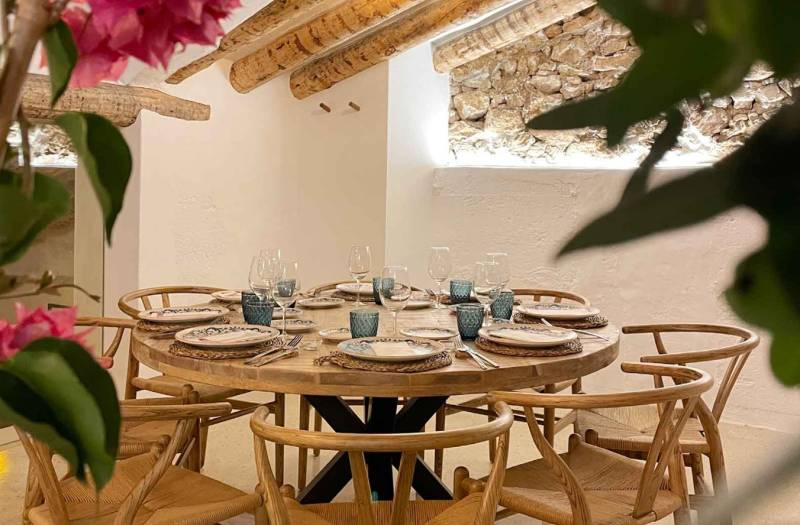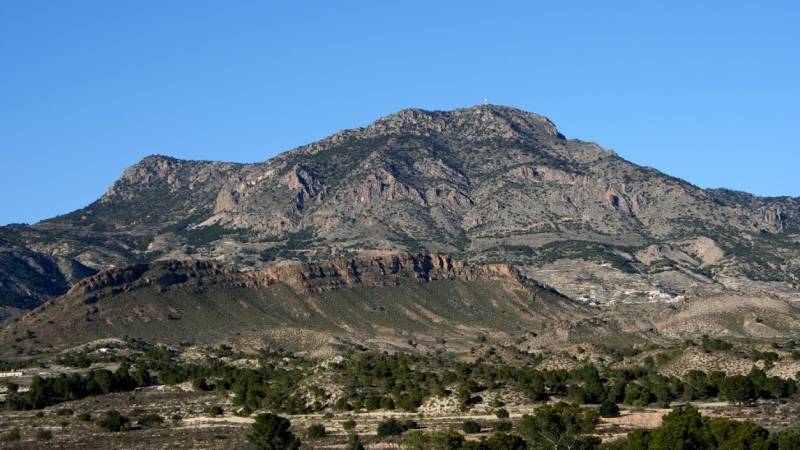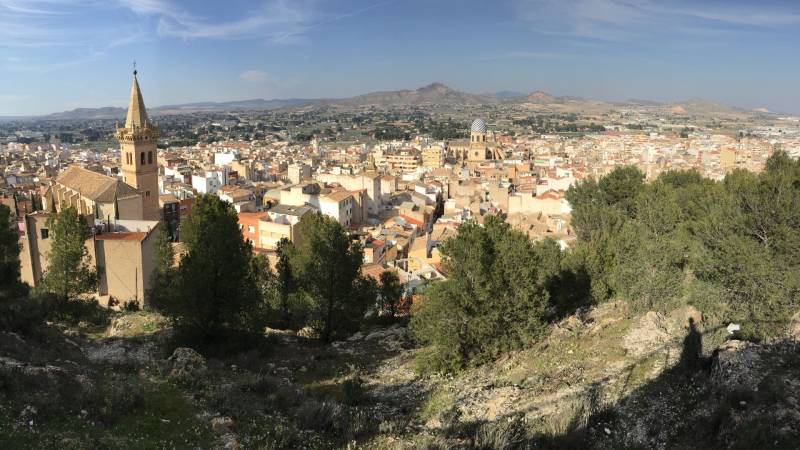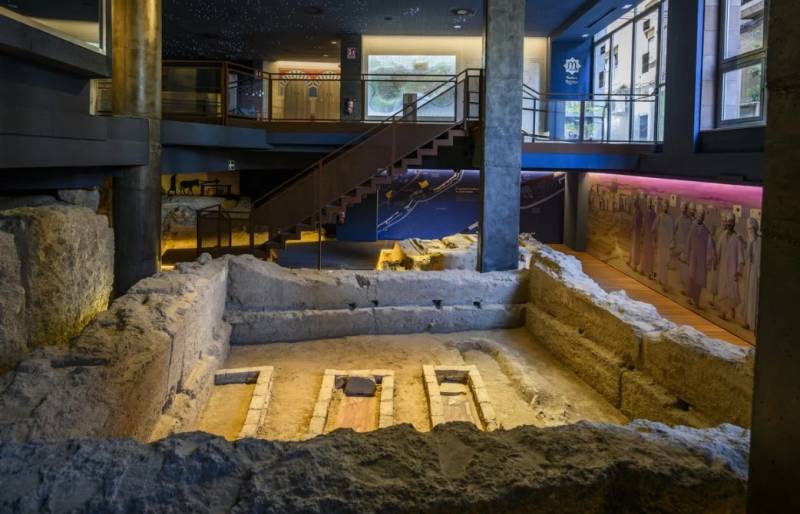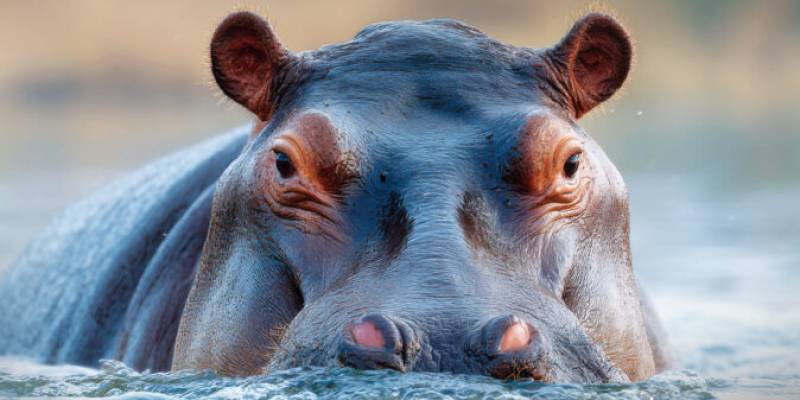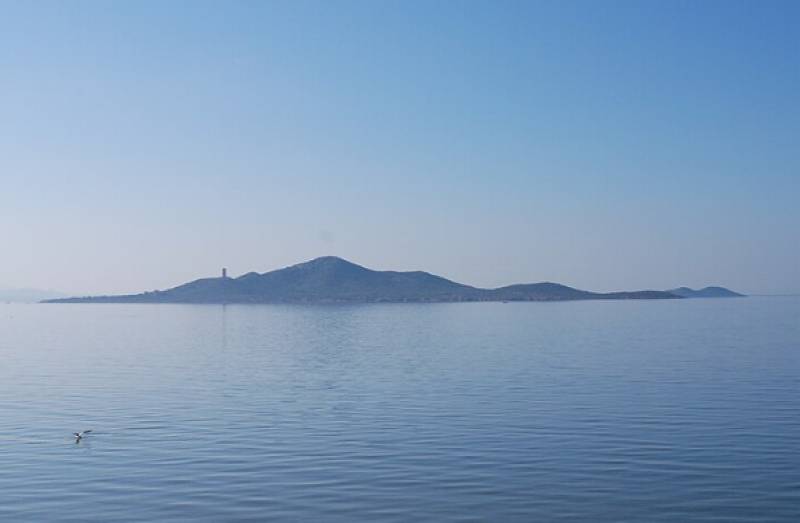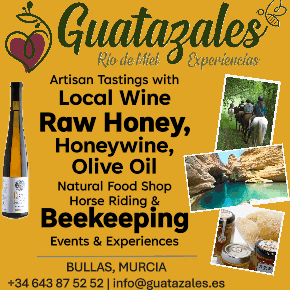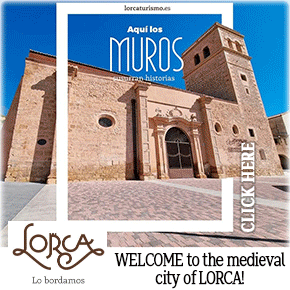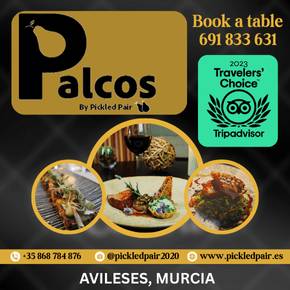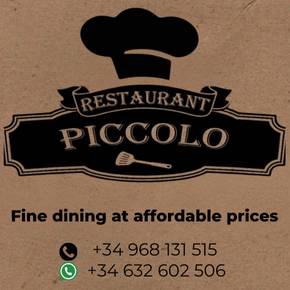- Region
- Vega baja
- Marina Alta
- Marina Baixa
- Alicante
- Baix Vinalopo
- Alto & Mitja Vinalopo
-
ALL TOWNS
- ALICANTE TOWNS
- Albatera
- Alfaz Del Pi
- Alicante City
- Alcoy
- Almoradi
- Benitatxell
- Bigastro
- Benferri
- Benidorm
- Calosa de Segura
- Calpe
- Catral
- Costa Blanca
- Cox
- Daya Vieja
- Denia
- Elche
- Elda
- Granja de Rocamora
- Guardamar del Segura
- Jacarilla
- Los Montesinos
- Orihuela
- Pedreguer
- Pilar de Horadada
- Playa Flamenca
- Quesada
- Rafal
- Redovan
- Rojales
- San Isidro
- Torrevieja
- Comunidad Valenciana
Jumilla Wine Route, Parajes del Valle
A fully ecological winery just outside the town of Jumilla close to the Sierra del Carche
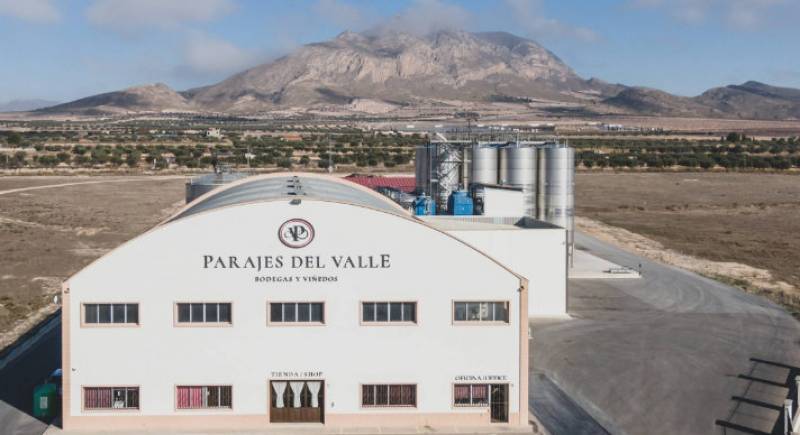 Parajes del Valle, one of the “bodegas” affiliated to the Jumilla Wine Route, prides itself on being the creator of special and original wines which in their way are unique due to the characteristics of the vines from which the grapes used are harvested.
Parajes del Valle, one of the “bodegas” affiliated to the Jumilla Wine Route, prides itself on being the creator of special and original wines which in their way are unique due to the characteristics of the vines from which the grapes used are harvested.
Their philosophy of the bodega is to maximize the character of these vines, which have overcome hard times and have become stronger over the years, while at the same time taking care of the environment and biodiversity of the land and soil in which they grow. They see the age-old vines as witnesses of the long and complex history of the land, and the wine as an effort to “honour these historical plots”.
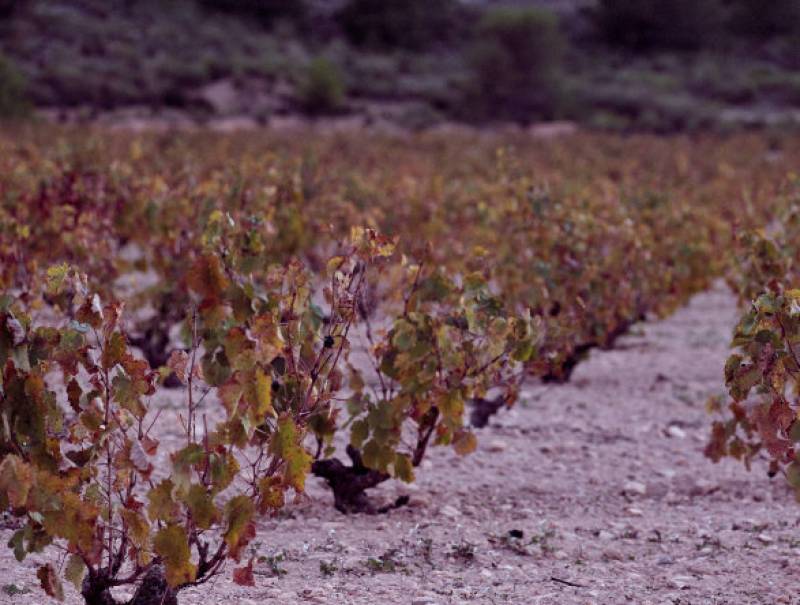 The different vines that produce their grapes are small and mostly cultivated under a rental system called “terraje”, a system which involves each individual grape grower to be dedicated to the land that he or she works on every day. Each vine is unique, with different soils, different textures and different origins, but all have one thing in common: a balanced and live environment.
The different vines that produce their grapes are small and mostly cultivated under a rental system called “terraje”, a system which involves each individual grape grower to be dedicated to the land that he or she works on every day. Each vine is unique, with different soils, different textures and different origins, but all have one thing in common: a balanced and live environment.
Among the plots where the grapes are grown are La Fuente de las Perdices, Cañada de Albatana, Las Puntillas and Término de Arriba, and in all of them fully ecological methods are used. The continental climate with Mediterranean influences includes cold winters and extremely warm summers, with barely 300 litres of rain a year, making this one of the driest DPO wine areas in the whole of Spain.
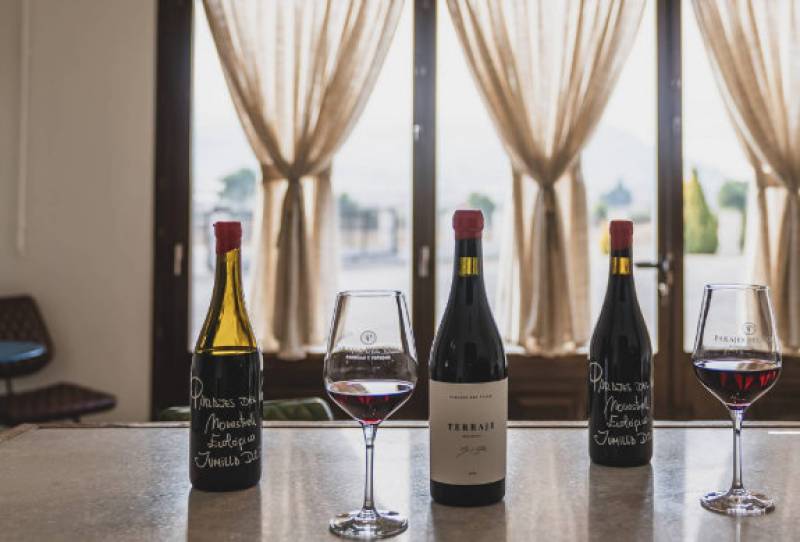 The Monastrell vineyards are located at altitudes of between 600 and 700 metres above sea level and the grapes are all picked by hand to ensure maximum quality and minimum damage
The Monastrell vineyards are located at altitudes of between 600 and 700 metres above sea level and the grapes are all picked by hand to ensure maximum quality and minimum damage
In terms of wine tourism and visits, Parajes del Valle offer tastings (either with guidance or without) and tours of the vineyards and the bodega itself.
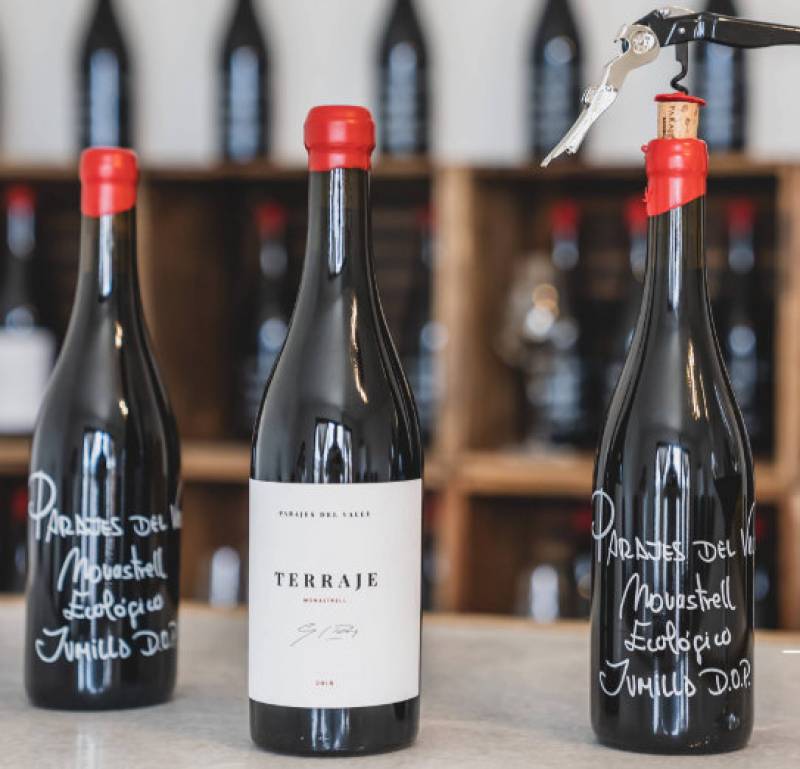 The winery is conveniently located for those arriving in Jumilla from the south right next to the exit at kilometre 67 of the N-344 road. Further information is available by telephone on 968 782977 or by email at export@parajesdelvalle.es.
The winery is conveniently located for those arriving in Jumilla from the south right next to the exit at kilometre 67 of the N-344 road. Further information is available by telephone on 968 782977 or by email at export@parajesdelvalle.es.
Alternatively contact the Jumilla tourist office in Plaza del Rollo (telephone 968 780237) or email info@rutadelvino.com.
staff.inc.ali
Oficina de Turismo Jumilla
The tourist office in the centre of Jumilla is easily found by driving straight into the centre of the town along the Avenida de Murcia and following the signposts. The tourist office is alongside the Parque de Don Albano Martínez Molina, where there are a number of parking spaces.
Jumilla, in the north of the Region of Murcia, has become internationally famous over recent decades due to the quality of the wines produced in the municipality, and wine tourism has begun to attract visitors from other parts of Spain and the rest of Europe.
The tourist office is happy to provide a range of maps and leaflets showing the different bodegas which can be visited within the municipality. Some of these form part of the Rutas del Vino de Jumilla, the Jumilla wine route, and can either be visited as a guided tour or sell their produce directly to the public.(see feed below for more details)
However, the town and the surrounding countryside have plenty of other attractions for visitors, and the popularity of Jumilla wines is leading more and more people to discover other facets of the tenth largest municipality in Spain.

These include the spectacular countryside and birdlife in the Sierra del Carche, the historic remains which range from cave paintings and a Roman mausoleum to the castle, the Iglesia de Santiago, the Town Hall and the Teatro Vico, and the gastronomy: rich stews are accompanied not only by the wines of the area but also by Jumilla pears, which also enjoy Denomination of Origin status.
Tourism in Jumilla is not as seasonal as it is in the coastal areas of the Region of Murcia, but the town is at its liveliest during the fiestas in Holy Week and the August Fair, which incorporates the grape harvest celebrations and the Moors and Christians parades.
The Altiplano of the Region of Murcia, which consists of the municipalities of Jumilla and Yecla, is only just over an hour by car from the Mar Menor, Cartagena, Mazarrón, Torrevieja and Alicante, and anyone wishing to visit real inland Spain and world-class wineries is advised to include Jumilla in their schedule.
Opening hours
Summer
Tuesday to Friday from 10am to 2pm
Saturday and Sunday 10am to 2pm
Monday closed
Winter
Tuesday to Friday from 10am to 2pm and 5pm to 7pm
Saturday and Sunday 10am to 2pm
Monday closed
Click for full information about visiting the Jumilla municipality and its wine bodegas: Jumilla section










